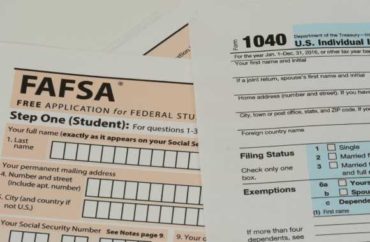
Republicans: Biden admin botched financial aid application because too focused on student loan ‘scheme’
The Department of Education’s botched financial aid application rollout still has some students waiting for information as the semester quickly approaches.
Meanwhile, lawmakers continue to demand answers, filing a recent subpoena for more details about what went wrong when the department rolled out its new, “simplified” Free Application for Federal Student Aid earlier this year.
The delays have hurt students, one expert told The College Fix recently.
Jill Desjean, director of policy analysis for the National Association of Student Financial Aid Administrators, told The Fix about the real-life consequences of the FAFSA problems.
“For some students, the FAFSA glitches this year may have been just a headache, but for countless others, they may result in a dream entirely derailed as some students forgo pursuing a postsecondary education entirely,” Desjean said in a recent email.
Desjean told The Fix it is just a few weeks before classes begin, and bills are due, yet some students “don’t have a clear answer on how much financial aid they’ll receive.”
The FAFSA change this year was in response to bipartisan legislation to make the application simpler and more efficient for families.
However, a three-month delay followed by processing glitches and data errors caused complications, and the department estimated approximately 30 percent of applications were affected.
Some colleges have blamed the problems for lower than expected enrollment numbers.
At Emerson College in Massachusetts, President Jay Bernhardt announced plans to lay off faculty and staff due to low enrollment, blaming in part the FAFSA rollout, The Berkeley Beacon reported.
Overall, FAFSA applications are down about 8 percent from last year, the department stated in June.
Lawmakers file subpoena for answers
The Government Accountability Office is conducting an investigation into the department’s handling of the rollout.
Alberto Betancourt, a spokesperson for the Department of Education, told The Fix in a recent email the agency has provided the GAO with more than 800 documents and continues “to work diligently to answer their questions.”
The DOE “remains committed to continuing to respond to GAO’s extensive requests as quickly as possible,” Betancourt said.
However, House Education Committee leaders filed a subpoena for records July 25, saying the DOE has not been transparent or diligent with investigation inquiries.
“From refusals to update staff to blocking a GAO investigation, it’s clear that the Department of Education isn’t going to give its co-equal branch the relevant information willingly,” Chairwoman Rep. Virginia Foxx stated in a news release.
The subpoena states that while it is true the GAO has obtained “some information and documents,” there are still many pending requests that “remain with the Department over four months later.”
Republican lawmakers also blamed the shaky rollout on the Biden Administration’s focus on its controversial student loan bailout.
In a letter to Secretary of Education Miguel Cardona in May, Foxx and Sen. Bill Cassidy wrote: “The Biden Administration proceeded to channel extensive resources away from congressionally mandated responsibilities, including the return to repayment and FAFSA simplification, and toward projects that were not sanctioned by Congress at all, including the Biden Administration’s illegal loan forgiveness scheme.”
Now, “instead of owning up to its mistake, the Biden administration is hiding evidence relating to its botched FAFSA rollout from Congress and the American people,” they wrote.
Furthermore, Republican Rep. Erin Houchin and Sen. Cassidy introduced legislation in July to require the department to make the application available to students by Oct. 1, instead of Jan. 1.
The FAFSA Deadline Act “will hold the DeptEd to a clear release date” and give families additional time to “prepare for their children’s futures,” Houchin said in a news release.
“If the Department is truly on track, as they claim, this bill will formalize its intention and ensure that students receive the support and financial information they need in a timely manner,” she said.
However, department spokesperson Betancourt, when asked about the legislation, told The Fix “adding a mandate in 2025-26 will not change the expediency with which we are approaching 25-26 development.”
MORE: 17 states sue Biden over latest student loan bailout plan
IMAGE: BDoss928/Shutterstock
Like The College Fix on Facebook / Follow us on Twitter






Please join the conversation about our stories on Facebook, Twitter, Instagram, Reddit, MeWe, Rumble, Gab, Minds and Gettr.